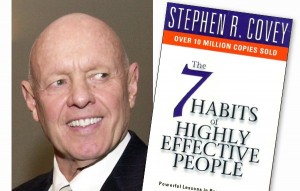Spiritual
The Man Who Made Dreams Come True

Dream It. Plan It. Do It. The Steps for achieving success. Great for any time of year and especially handy steps for those New Year’s resolutions. Or any time you choose to change your life, your health, your marriage, your family life….
Dream it. Plan it. Do it.
Alexander Green
Browsing the newsstand at the local airport, I picked up a copy of National Geographic Adventure.
It wasn’t the splashy colors or the teasers on the cover that caught my attention. It was the magazine’s tagline: Dream it. Plan it. Do it.
If life had an instruction manual, this might be the perfect six-word encapsulation. Yet as we grow older, we often find that important dreams remain unrealized, even achievable ones.
Why is this? Maybe it’s because we haven’t really defined what it is we want – or haven’t devoted the time necessary. Or perhaps we haven’t appreciated the importance of that essential step between dreaming and doing: Planning.
 One man who devoted his life to helping others clarify and realize their dreams was Dr. Stephen R. Covey, an educator, businessman and author of several books, including the mega-bestseller The Seven Habits of Highly Effective People.
One man who devoted his life to helping others clarify and realize their dreams was Dr. Stephen R. Covey, an educator, businessman and author of several books, including the mega-bestseller The Seven Habits of Highly Effective People.
Covey insisted that a rich, rewarding life is the result of striving toward worthwhile goals. And he made it his life’s mission to show others how to achieve them.
Born in Salt Lake City, it was while serving as a missionary for the Mormon Church that Covey discovered a talent and passion for teaching. And what he taught, primarily, was principle-centered leadership.
He asked readers to examine their lives to see if their actions were in harmony with their values, with universal principles. How are you treating people? What are you contributing on a daily basis? Are you doing good… or are you merely doing well?
The Seven Habits and its even better follow-up First Things First are essential reading for achievers everywhere. Not just managers and business owners, but athletes, musicians, artists, students. In The Seven Habits, Covey proposes that you:
- 1. Be proactive. Make things happen rather than waiting for them to happen.
- 2. Begin with the end in mind. Motivate yourself – and direct your energy and activities more effectively – by clearly defining and visualizing your goals.
- 3. Put first things first. Eliminate time wasters (like mindless talk, channel surfing and social networking) and focus on things that will improve the quality of your personal and professional life.
- 4. Think win-win. You achieve things more easily in a cooperative effort than in a competitive struggle. Instead of thinking “their way” or “my way,” look for how others can achieve their objectives as you realize yours.
- 5. Seek first to understand, then to be understood. Persuasive communication is essential. But it begins with being an empathetic listener. Most people do not listen to understand; they listen with the intent to reply.
- 6. Synergize. Ally yourself with capable individuals. Their strengths will compensate for your weaknesses and move you closer to your goal.
7. Sharpen the saw. Balance all four aspects of your life – mental, physical, emotional and spiritual – to become more effective. Sharpening the saw means renewing yourself through family, friends, exercise, and devotion or meditation.
These points are only a beginning guideline.
Covey also Offers Concrete Strategies for Goal Attainment
For instance if, like so many, you are overwhelmed by everything on your plate, you might try his daily approach:

Planning, setting aside minutes a day to focus on what is important in your life can make the difference between a fulfilled life and a life that is directed by emergencies or what seems urgent.
Each morning: set aside 15 minutes to plan your day. Begin by making a task list that includes everything you need to do, from important things like making the presentation at work to more trivial matters like cleaning out the guest bedroom closet.
After you’ve listed everything, label each item with an A, B or C. A stands for “Must Be Done.” B means “Should Be Done.” And C is “Could Be Done.”
Return to the A’s and number each task according to how vital it is. An action toward your most important goal (whether it’s career advancement, better fitness or learning to play the clarinet) should always be ranked A1. Your second biggest priority is A2. And so on. Rank the B’s and C’s the same way.
Then kick off each day by spending at least 30 minutes tackling A1. When your work is completed (or you’ve done all you can for one day), turn your attention to A2. And continue down the line. Only after all the A’s are finished should you turn to the B’s – and only when those are completed do you start on C1.
How to be Enormously Efficient
Carry the undone items over to tomorrow. Begin that day with another 15-minute planning session and a new master list – and then start your day by going hand-to-hand with A1.

Do It. The third step of a well thought out plan. You may not accomplish everything on your plan, but you will accomplish more by choice.You won’t get everything done on your list each day. Maybe you’re so busy you don’t get to the B’s at all. And that’s fine. But at least you’re working on what matters most. (As Covey puts it, “The main thing is to keep the main thing the main thing.”)
You may think that – in your head at least – you’re already doing something like this. But that’s unlikely. Sitting down each morning to review your goals and write out a daily plan is enormously efficient. (And, trust me, at some point you’d rather clean out the closet than carry it forward one more day.)
Covey’s real contribution was not efficiency techniques or time management strategies. It was urging us to focus on the important, not just the urgent. He reminds us that there shouldn’t be a gap between what you value and how you spend your time.
And he returns again and again to first principles, which always appeal to an educated conscience. That, too, takes effort, however. As he writes in First Things First:
“It actually takes more discipline, sacrifice and wisdom to develop an educated conscience than it does to become a great sculptor, golfer, surgeon, Braille reader, or concert pianist. But the rewards are far greater – an educated conscience impacts every aspect of our lives. We can educate our conscience by:
- Reading and pondering over the wisdom literature of the ages to broaden our awareness of true north principles that run as common themes throughout time
- Standing apart from and learning from our own experience
- Carefully observing the experience of others
- Taking time to be still, listen to, and respond to that deep inner voice
Sadly, Dr. Covey died of complications from injuries he sustained in a bicycle accident last year. In his obituary, family members didn’t dwell on his wealth, his fame or his many accomplishments. They noted that he enjoyed cherry-chocolate malts, inspiring movies, practical jokes and “letting the kids build peanut butter and jelly sandwiches on his bald head.”
“We’re here,” said Covey, “to live, to love, to laugh, to learn, and to leave a legacy.”
Schedules are important. Efficiency is great. But our real focus should be principle-centered living. That is the means and the end, the journey and the destination.
Culled from the world’s great religions and secular philosophies, Covey’s principles offer a unique advantage. They allow you to work on the one thing over which you truly have control – yourself.
Carpe Diem,
Alex
P.S. I invite you to join me and my fellow analysts and editors at Investment U at the beautiful Vinoy Renaissance Resort and Golf Club in St. Petersburg, Florida, March 13-16, 2013. For more information, click here.
Alexander Green is the Investment Director of The Oxford Club. The Oxford Club Communique, whose portfolio he directs, is ranked among the top investment letters in the nation for 10-year performance by the independent Hulbert Financial Digest. Alex is the author of three national best sellers including, most recently, Beyond Wealth: The Road Map to a Rich Life. He has been featured on Oprah & Friends, CNBC, National Public Radio (NPR), Fox News and “The O’Reilly Factor,” and has been profiled by The Wall Street Journal, BusinessWeek, Forbes, and Kiplinger’s Personal Finance, among others. He currently lives in Charlottesville, Virginia and Winter Springs, Florida with his wife Karen and their children Hannah and David.
Copyright © 2012 by Oxford Financial Publishing, LLC.
Contact: Spiritual Wealth Member Services
105 West Monument Street
Baltimore, MD 21201
Email: CustomerService@
Spiritual Wealth Disclaimer: Nothing published by Spiritual Wealth should be considered personalized investment advice. Although our employees may answer your general customer service questions, they are not licensed under securities laws to address your particular investment situation. No communication by our employees to you should be deemed as personalized investment advice. We expressly forbid our writers from having a financial interest in any security recommended to our readers. All of our employees and agents must wait 24 hours after on-line publication or 72 hours after the mailing of printed-only publication prior to following an initial recommendation. Any investments recommended by Spiritual Wealth should be made only after consulting with your investment advisor and only after reviewing the prospectus or financial statements of the company.
Tagged 7 Habits of Highly Effective People, 7 Habits of Highly Effective People Calendar, 7 Habits of Highly Effective People Workbook, 8th Habit, Alexander Green, eliminate time wasters, First Things First, how to accomplish new years resolutions, live love laugh learn, Spiritual Wealth, Stephen R. Covey




hghFebruary 10, 2013 at 11:10 am
some really interesting information, well written and broadly user pleasant.
my blogDecember 27, 2012 at 4:56 am
Hello.This article was extremely interesting, particularly because I was browsing for thoughts on this topic last week.